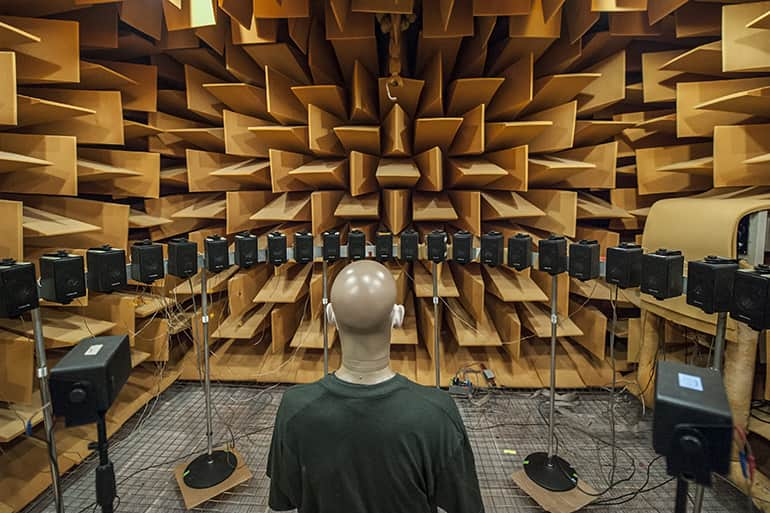In May 2016, Eric Hunter, Pasquale Bottalico and Simone Graetzer from the Department of Communicative Sciences and Disorders had their research published in The Journal of the Acoustical Society of America, a leading journal for acoustic studies.
The trio's work analyzed "how vocal effort is affected by speaking style, room acoustics, and short-term vocal fatigue," according to the article's abstract. They explored how people's speech and effort to speak changes when they enter various environments, such as an auditorium, or more specifically, a classroom. The broader focus of the study was on students and teachers in the classroom.
Hunter said that he has been specializing in the study of teachers for about 15 years. A few years ago, Hunter was invited by colleagues of Bottalico to Italy to speak about his research. At the time, Bottalico was still completing his Ph.D. After discussing their research and following Hunter's return to the U.S., he invited Bottalico to come to Michigan State University and collaborate on the idea together.
The first experiment was conducted in October of 2014 and published in December of 2015. While they waited for the research to be published, a second experiment took place in February of 2015, which was just published last month.
"We conducted our experiments in some unique research environments of Professor Rakerd in the (Communication Arts and Sciences) building. These include an anechoic chamber and reverberant room with a large work space located between the two, which is a semireverberant environment," said Graetzer.
Speech recordings were gathered from 20 students in the College of Communication Arts and Sciences. These students were asked to read a specific text in these rooms while the researchers manipulated the environment in each room using different sounds and variables. Then the students were asked about how it felt and if they noticed a difference.
The results indicated that an individual's vocal effort decreased when special reflective panels were placed in the space.
"We found that when early reflections were increased in each of the three environments, the talkers reduced the volume of their speech and reported that one, they perceived their own voice to be clearer, and two, under most conditions, they perceived their vocal effort to be reduced," Graetzer explained.
Moving forward, Bottalico said that their research will continue to be motivated by finding a long-term solution to reduce vocal effort and fatigue.
"We need to work more on understanding which kind of surface we can use and where, at what distance, to place the surface in order to optimize this effect. At this moment, we only have preliminary results, so we were only able to demonstrate that there is an effect. This means that it is possible to decrease the speakers' vocal effort by placing a reflective surface or surfaces correctly."
Since publishing the research, titled "Effects of speech style, room acoustics, and vocal fatigue on vocal effort," Hunter, Bottalico and Graetzer have attended multiple conferences to present various aspects to different professional societies. They attended meetings of the Acoustical Society of America in Salt Lake City as well as the Voice Symposium in Philadelphia and another in Boston.
"It is great that we have demonstrated that there is an effect," said Bottalico. "Now, we have to optimize the solution for the classroom."
The article can be found on the Acoustical Society of America's website, here.
